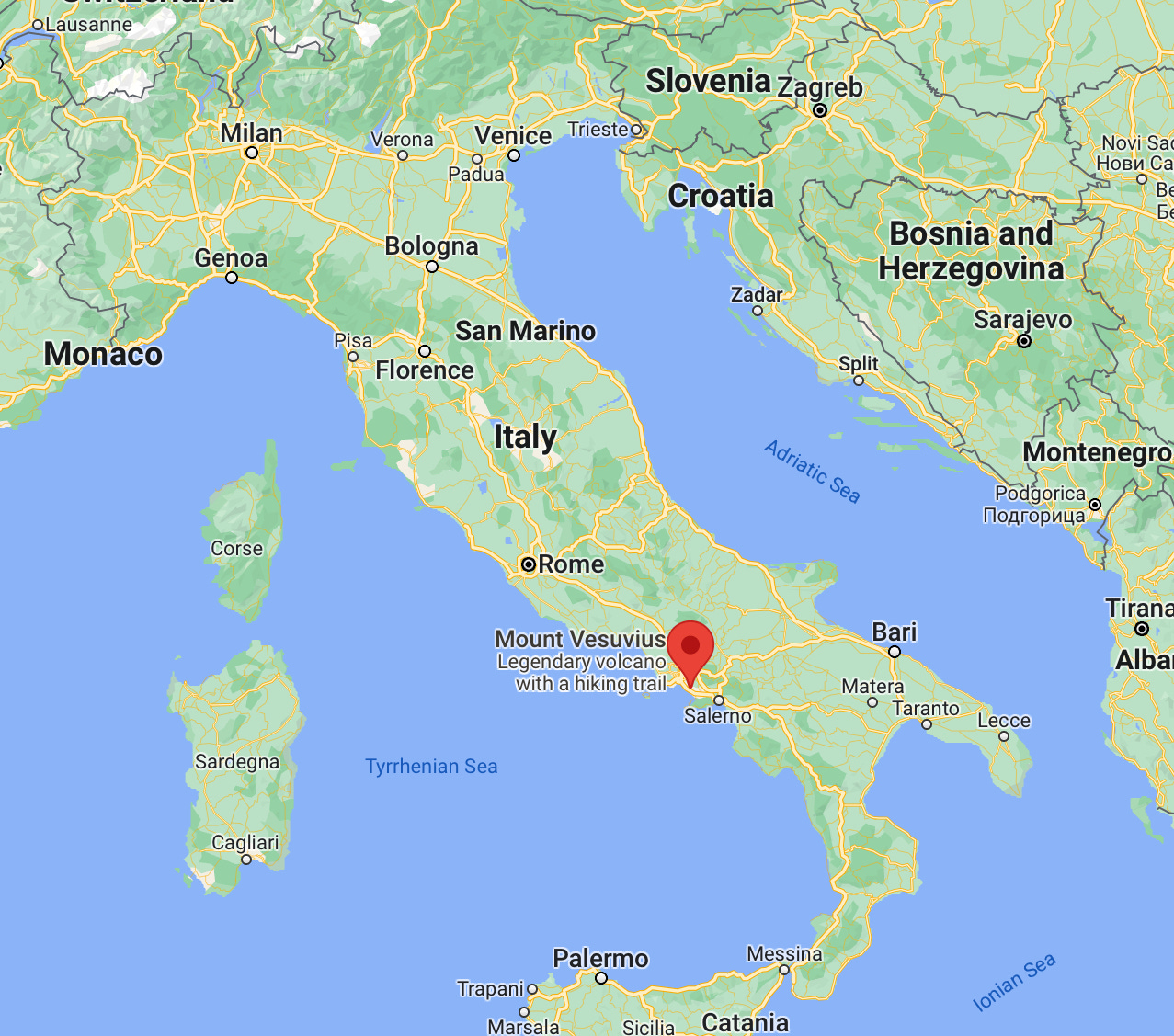The Eruption of Vesuvius
By Pliny the Younger
The eruption of Vesuvius was a major natural event in the 1st century Roman Empire (79 A.D.). The famous Pompeii and Herculaneum, which continue to be fascinating and ongoing archaeological dig sites, were destroyed (and preserved) by this event. This brief recount of the eruption and surviving of the event is given to us by Pliny the Younger in two letters to the famous Roman historian Tacitus. The first letter describes his uncle (Pliny the Elder) and his demise as he attempts to offer aid to some fleeing from the effects of the eruption. The second letter describes Pliny the Younger’s own story as he and his mother are waiting for Pliny the Elder to return and how the volcanic eruption threatened to overtake them also.
All in all, this is a very interesting and entertaining historical account which involves a few famous men of Rome. It is interesting, also, due to its proximity to the events of the New Testament. The eruption takes place only nine years after the destruction of Jerusalem by the Romans and it is early enough in the first century A.D. that there are many eyewitnesses of the resurrected Jesus still alive and doing ministry. Though this story does not directly intersect with biblical characters it does offer an interesting story from the same time period and from a culture that deeply impacts 1st century Christianity. Further, the themes in this account provide great discussion for Christian analysis of ideas.
Here is the Full PDF of this short text for your use. Enjoy!
Grammar Questions:
To whom is this letter addressed? (pg. 264)
What, according to Pliny, assured that his uncle would receive “an everlasting remembrance”? (pg. 264)
To what did Pliny liken the appearance of the initial cloud from the eruption of Vesuvius? (pg. 265)
What initially compelled Pliny the Elder to investigate the cloud? (pg. 265)
What happened which changed the tenor of his original endeavor? (pg. 265)
How did Pliny the Elder demonstrate a lack of fear about his circumstances? (pg. 266)
What did Pliny the Elder, Pomponianus, and those with them, use to provide protection for their heads when they fled to the fields? (pg. 266)
What did Pliny the Younger do at first while Vesuvius was erupting? (pg. 268)
For what reason did Pliny the Younger and his mother delay their flight to safety? (pg. 268)
For what reason did Pliny and his mother leave the main road while fleeing? (pg. 269)
What was Pliny’s “consolation” during the events he describes? (pg. 269)
Logic Questions:
How do we see scientific curiosity, observation, and hypothesis in Pliny’s letter? (pg. 265)
Why is the nature of Pliny’s account, namely that it was either “eye-witness” or “received immediately after” the incident important? (pg. 267)
Why might people add to terrible events by exaggerating or making up lies about what is going on? (pg. 269)
What are some significant distinctions between the first and second letter as far as purpose and content and why is this important?
Rhetoric Questions:
Pliny the younger states, “Happy I esteem those to be to whom by provision of the gods has been granted the ability either to do such actions as are worthy of being related or to relate them in a manner worthy of being read; but peculiarly happy are they who are blessed with both these uncommon talents.” (pg. 264) What is your evaluation of this statement? How important are (or should be) noble deeds, and the preservation of their record, to our happiness?
Should we seek to highlight the virtue of the deceased as Pliny the Younger did for his uncle Pliny the Elder? Why or why not?
Pliny stated that his uncle “sat down to supper with great cheerfulness, or at least (what is just as heroic) with every appearance of it.” (pg. 266) Do you think he is right that the appearance of cheerfulness is equally heroic to actually maintaining cheerfulness in that moment?
Pliny describes his behavior during the eruption stating, “I know not whether I should call my behavior... courage or folly; but I took up Livy... as if perfectly at my leisure.” (pg. 268) What would you say about his behavior? Was he being foolish, brave or something else? Why?
Pliny reports the reaction of many to the events they experienced at the eruption of Vesuvius. He states that the greater part of the people were “convinced that there were now no gods at all.” (pg. 269) Why do you think people sometimes respond this way in the midst of fear and suffering and how would you answer someone in their place?
Theological Analysis:
Pliny the Younger states that he believed at the time that he was experiencing the end of all things (see his description on 268-269). Read Revelation 16. In what ways do the events Pliny describes find parallels in the Scripture account of God pouring out his wrath? What is different?
Consider Joshua 1:9; 1 Corinthians 16:13; consider also Acts 4 and other places in Scripture where believers are told to be courageous or show boldness and courage. What is the difference between boldness and imprudence? When are believers called to be brave and what does that look like in the Christian life?
Great Ideas, Virtues, Vices:
Happiness, Death, Courage vs. Recklessness, Temperance, Light vs. Darkness, Family, Eschatology



Wow! This is so above my pay grade. I really regret not learning more when I was younger. I thought I was so knowledgeable since I had attended a elite private school as a kid. I really knew nothing. Still don't. Thanks for sharing.